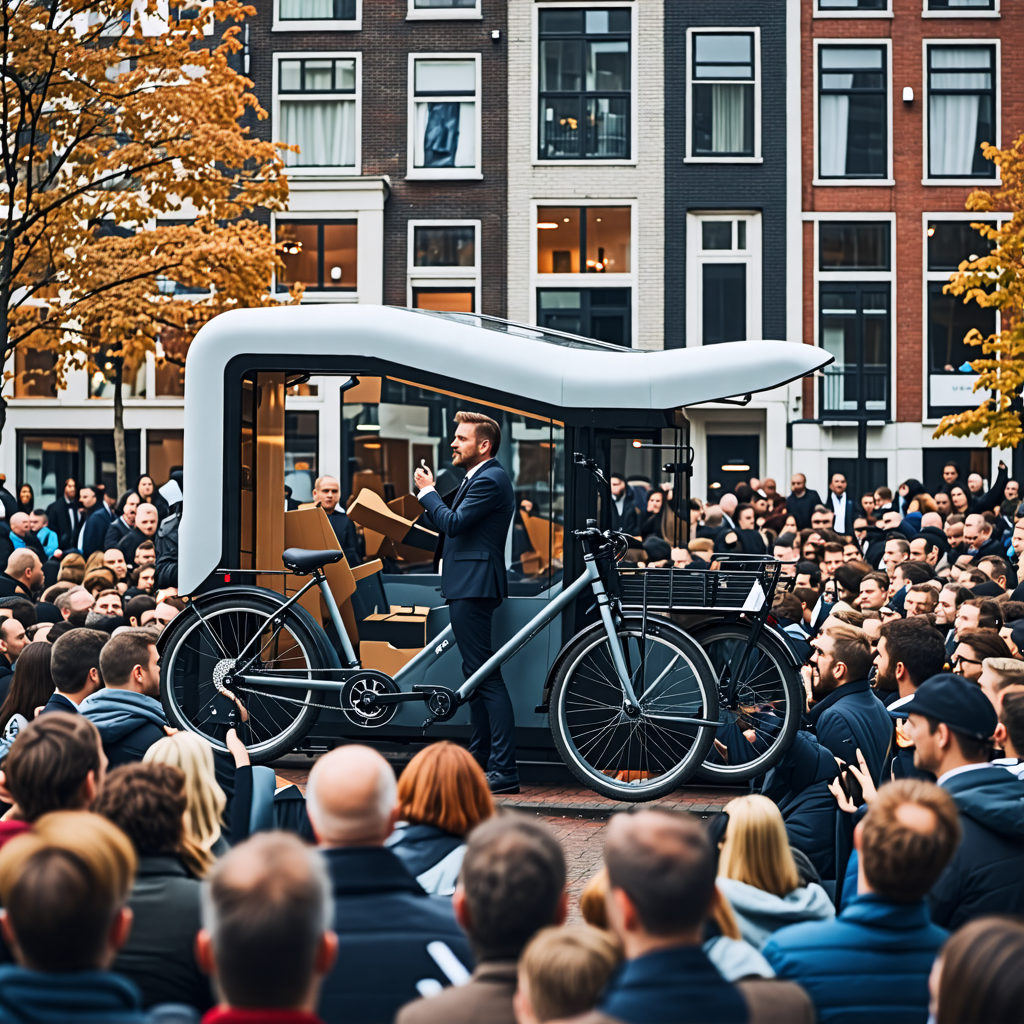Amsterdam, Netherlands – In a move set to revolutionize urban living and possibly redefine the very concept of “home,” the Dutch government has announced an innovative solution to the country’s housing crisis: redefining cargo bikes as apartments.
Dubbed “Operation Bikeshome,” the plan was unveiled by the Ministry of Housing, Spatial Planning and the Environment in a press conference that took place in a repurposed double-decker bus. “We are facing an unprecedented housing shortage,” said Minister Hans van den Drie. “So, we thought, why not look to our bike lanes for the answer? Every cargo bike has the potential to be a cozy, compact living space.”
The plan outlines a comprehensive set of guidelines for converting cargo bikes into legally recognized dwellings. Bikes will now be assessed for “livability potential” based on factors like cargo space, stability, and the availability of bike baskets, which will now be reclassified as “mini-fridges.”
“Think about it,” Minister van den Drie continued, “the infrastructure is already in place. Bike lanes become neighborhoods, cycling parks become communities. It’s a sustainable solution that makes use of existing resources.”
To kickstart the initiative, the government has partnered with major bike manufacturers to develop “Home Conversion Kits.” These kits include essential items like window curtains for privacy, foldable mattresses, and solar-powered USB chargers designed to fit snugly in bike baskets. Additionally, local bike mechanics will offer services to install small solar panels on bike trailers to power these new mobile homes.
The government’s plan also promises to rezone areas traditionally used for bike parking into “residential districts.” “We’re redefining urban planning,” said urban planner Lotta Parkeerplaats. “Streetlights will now be repurposed as lampposts for front yards, and bike racks will serve as welcome mats.”
Critics, however, are not convinced. “This is absurd,” said housing activist Geert Huizeloos. “People need real homes, not a rebranded version of homelessness. This plan doesn’t address the root of the housing crisis; it merely puts a Band-Aid on a gaping wound.”
In response to concerns about sanitation, the government has assured that a fleet of “Mobile Utility Bikes” will provide essential services like water, electricity, and waste disposal. These utility bikes, painted in cheerful pastel colors, will circulate through “bike-hoods” (bike neighborhoods) to ensure residents’ needs are met.
Proponents of the plan argue that it will not only alleviate the housing crisis but also reduce traffic congestion. “Fewer people will need to commute if they already live on their bikes,” van den Drie pointed out. “Imagine the environmental benefits! It’s a win-win.”
Early adopters of the scheme, known as “bike-homesteaders,” have already begun transforming their cargo bikes. In a viral video, one enthusiastic participant gave a tour of his modified bike, complete with a rooftop garden and a tiny library. “I love it,” he said. “I’ve never felt so free. Plus, I never have to worry about bike parking tickets again – this is my home!”
As “Operation Bikeshome” rolls out, the world watches with bated breath. Will this be the future of urban living, or just another passing fad? Either way, the Dutch government has certainly put the pedal to the metal in its quest to solve the housing crisis, one bike lane at a time.

